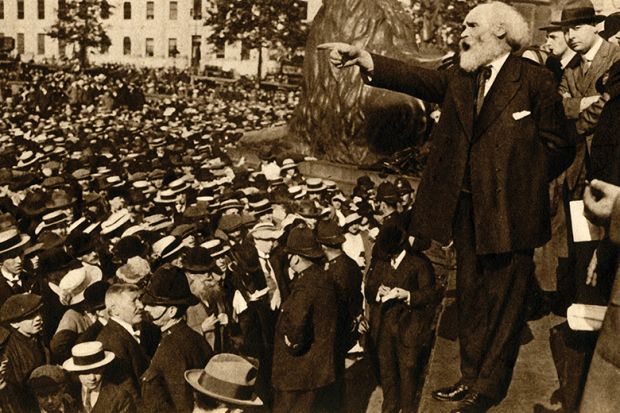When Sir Keir Starmer was seeking to become leader of the Labour Party in 2020, he was keen to embellish his leftist credentials as the unity candidate to replace Jeremy Corbyn. He therefore declared “I am a socialist”, but swiftly qualified the point: “For me, it’s a very practical application.” This no-nonsense stance echoed that of one of the party’s founders, Keir Hardie, who said of the British: “We are a solid people, very practical, and not given to chasing bubbles.”
This – often quoted yet rarely contextualised – remark comes from a letter to Friedrich Engels, explaining why the British labour movement supported parliamentary routes to reform rather than revolutionary socialism. But does this supposed tension between pragmatic electability and transformative change capture the scale of the existential crisis facing social democratic parties across Europe?
Starmer’s repeated recourse to the “moral case for socialism” recalls the ambiguous “anti-politics” that Mark Allison argues has characterised socialism since its 19th-century heyday. For him, “socialism is best understood as a goal to be imagined, rather than an ideological program to be instantiated”. Its relationship with politics is instrumental, even dismissive, in that the desired reconfiguration of social relations would render political institutions in the traditional sense obsolete. Thus, in Imagining Socialism, Labour’s adoption of a new constitution and first party programme in 1918 is seen to mark the end of a long “socialist century” that started with the first airing of Robert Owen’s communitarian “Plan” in 1817.
Earlier socialists sought to reinvigorate collective life by social, rather than political, reform, which for Allison binds socialism’s anti-political endeavour to its aesthetic imagination: “the ultimate consequences of socialist experimentation would only become apparent with time – in a future that could only be accessed by extrapolating, imaginatively, from the conditions of the present”. Through richly contextualised cases, his book traces an aesthetic impulse that animates socialist writing, thought and practice, from Owen’s geometric designs for “Villages of Unity” through oratorical Chartist poetry and cooperative Working Men’s Associations run by Christian Socialists as conductors of divine order to William Morris’ notion that the foundation of a non-governmental society was labour as a form of artistic practice.
It’s fascinating to see so many instances where socialist ideas were debated in unashamedly aesthetic terms. After the protagonist of Robert Tressell’s novel The Ragged Trousered Philanthropists (1914) regales his co-workers with a “great oration” on the virtues of socialism, another reflects: “Socialism was a beautiful ideal, which he for one would be very glad to see realized, but he was afraid it was altogether too good to be practical.” But while some caricatured socialism as fanciful flights of overcharged imagination, Allison convincingly suggests that it was actually the aesthetic logic of, say, Owen’s “new view” that enabled him to assert that the strife of politics would soon yield to a condition of “universal harmony”.
Such a long historical perspective perhaps holds salutary insights for today’s radical thinkers. Former shadow chancellor John McDonnell once attempted to reassure voters that “socialism is about planning” – it could do with a bit of dreaming, too.
Charlotte Jones is Leverhulme early career fellow at Queen Mary University of London.
Imagining Socialism: Aesthetics, Anti-politics, and Literature in Britain, 1817-1918
By Mark A. Allison
Oxford University Press, 288pp, £70.00
ISBN 9780192896490
Published 21 April 2021
Register to continue
Why register?
- Registration is free and only takes a moment
- Once registered, you can read 3 articles a month
- Sign up for our newsletter
Subscribe
Or subscribe for unlimited access to:
- Unlimited access to news, views, insights & reviews
- Digital editions
- Digital access to THE’s university and college rankings analysis
Already registered or a current subscriber? Login







